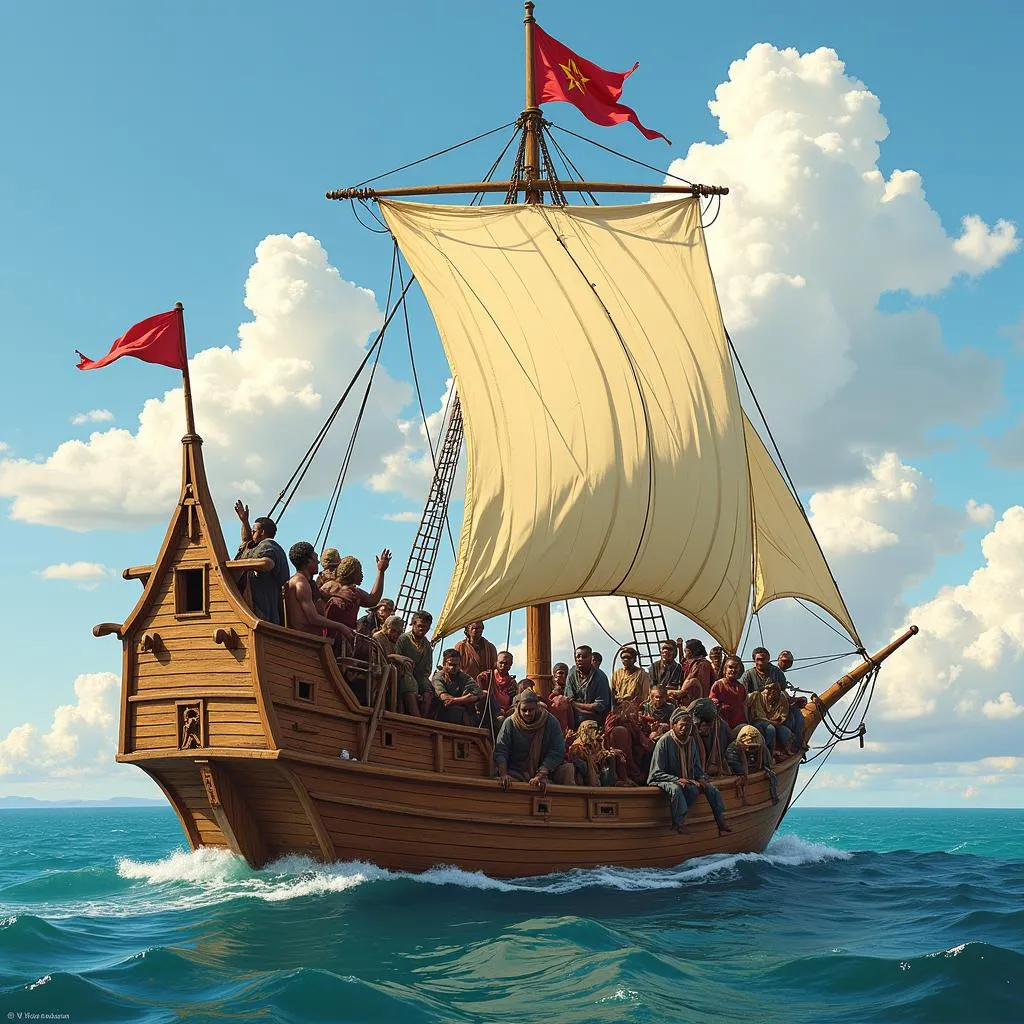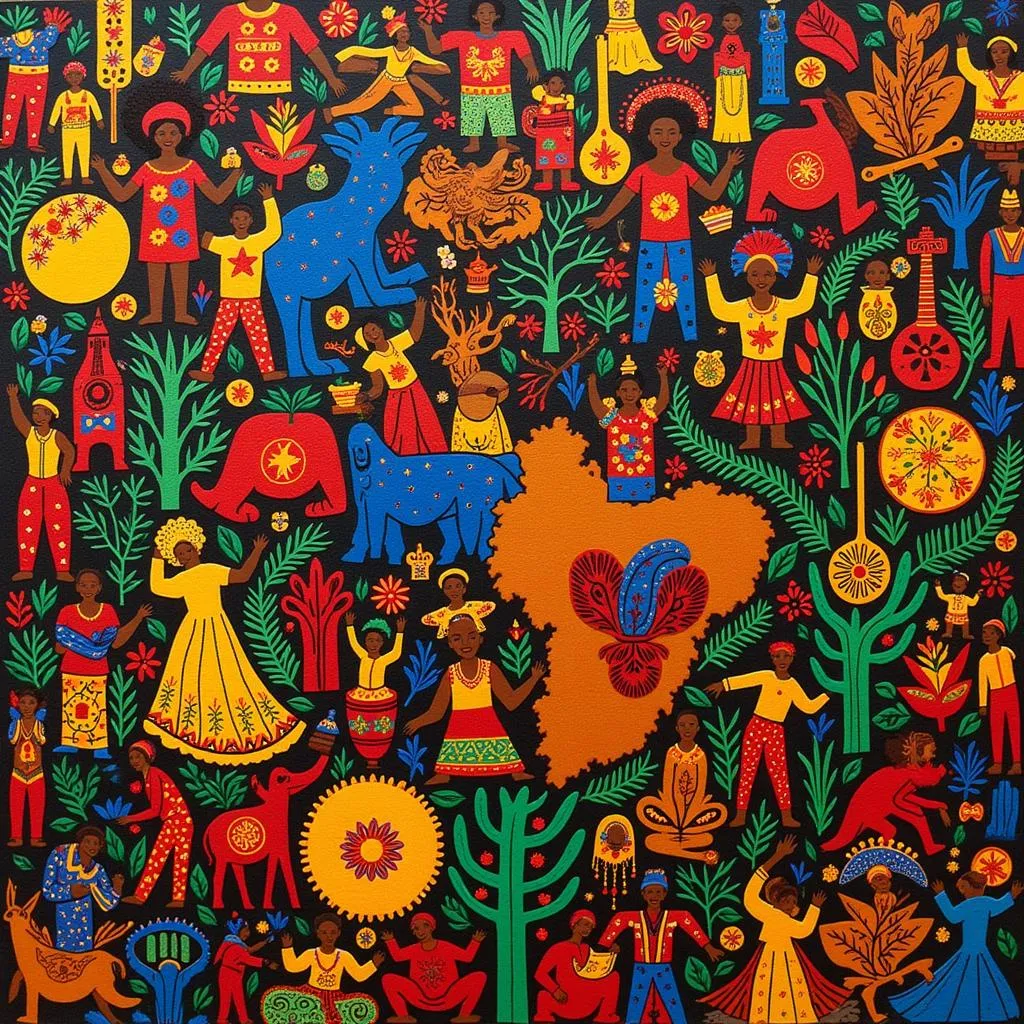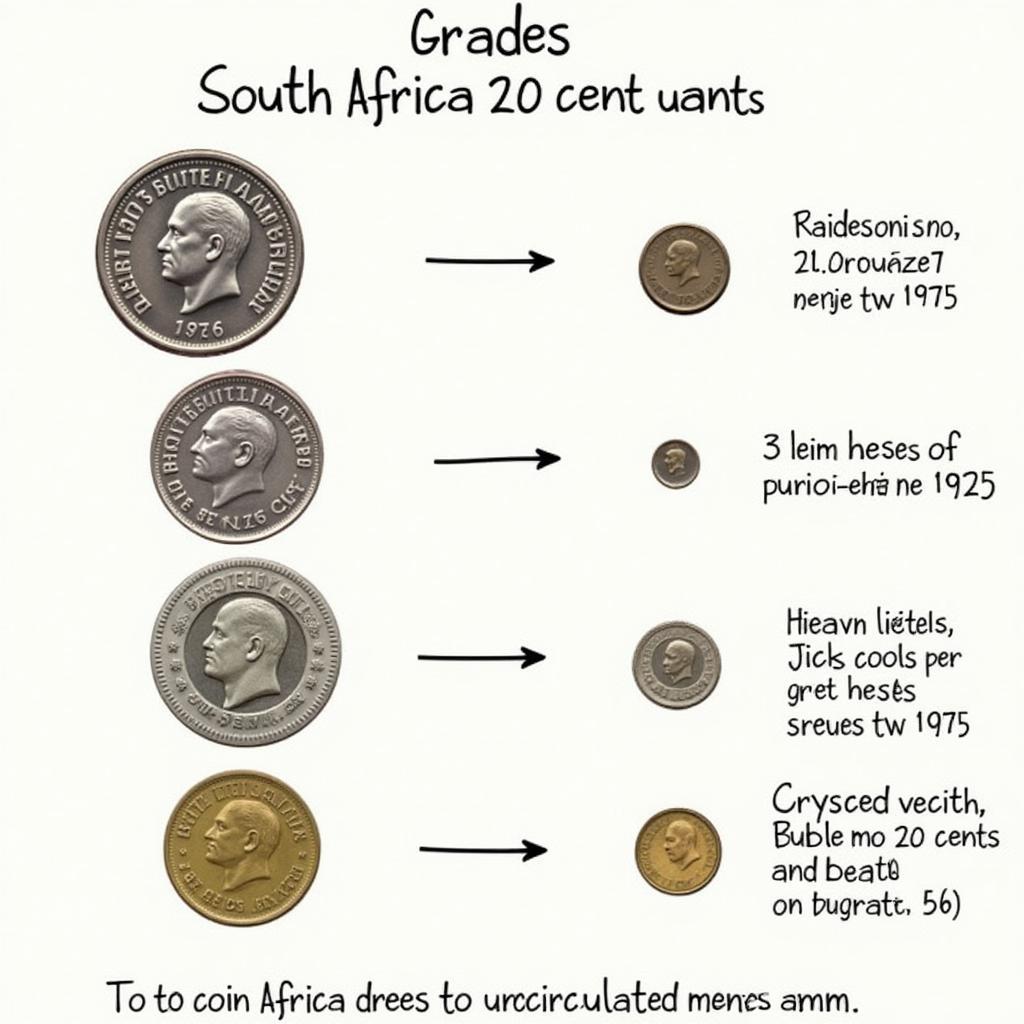10.7 Million Africans Who Were Brought to the Americas: A Journey Through the Transatlantic Slave Trade
The transatlantic slave trade, a dark chapter in human history, forcibly displaced 10.7 million Africans to the Americas over a period of more than 400 years. This horrific trade had a devastating impact on the African continent, leaving a legacy of cultural disruption, economic instability, and intergenerational trauma that continues to shape the world today.
The Unfathomable Scale of the Transatlantic Slave Trade
The number 10.7 million represents only a fraction of the total number of Africans who were victims of the slave trade. Many perished during the perilous journey across the Atlantic, known as the Middle Passage, while countless others died resisting enslavement or succumbing to the brutal conditions of plantation life.
 A crowded slave ship sailing across the Atlantic Ocean.
A crowded slave ship sailing across the Atlantic Ocean.
The Origins and Evolution of the Trade
The transatlantic slave trade began in the 15th century, driven by European demand for labor on sugar plantations in the Caribbean and South America. Portuguese traders were the first to engage in the trade, followed by other European powers like Spain, England, France, the Netherlands, and Denmark. Over the centuries, the trade expanded to encompass a vast network of trading posts, shipping routes, and plantation economies across the Americas.
The Human Cost of the Transatlantic Slave Trade
The impact of the slave trade on Africa was catastrophic. Entire communities were torn apart as men, women, and children were forcibly removed from their homes and families. The loss of human capital crippled local economies and disrupted traditional social structures. Moreover, the psychological trauma inflicted by the trade continues to resonate in the collective memory of many African nations.
Resistance and Resilience in the Face of Oppression
Despite the horrors they endured, enslaved Africans never stopped resisting their captors. From individual acts of defiance to organized rebellions, they fought for their freedom and humanity. Their resistance took many forms, including cultural preservation, religious syncretism, and the creation of new forms of knowledge and expression.
 A group of enslaved Africans revolting against their captors.
A group of enslaved Africans revolting against their captors.
The Legacy of the Transatlantic Slave Trade Today
The legacy of the transatlantic slave trade is complex and multifaceted. It continues to shape global power dynamics, racial inequalities, and cultural landscapes. Understanding this history is crucial for addressing contemporary issues such as systemic racism, economic disparities, and the ongoing struggle for social justice.
Remembering and Learning From the Past
Today, numerous museums, memorials, and research institutions are dedicated to preserving the memory of the transatlantic slave trade and honoring the resilience of its victims. By engaging with this history, we can learn from the past, acknowledge the enduring legacies of slavery, and work towards building a more just and equitable future.
Expert Insight from Dr. Abena Owusu, Historian specializing in the African Diaspora:
“The transatlantic slave trade was not just about the physical movement of people, it was also about the systematic attempt to erase African cultures, identities, and histories. Understanding this is key to comprehending the long-lasting impacts of this period.”
Conclusion
The transatlantic slave trade remains a stark reminder of the capacity for human cruelty and greed. However, it also serves as a testament to the resilience, strength, and unwavering spirit of the African people. By remembering and learning from this dark chapter in history, we can work towards a future where all people are treated with dignity and respect.
FAQ:
- What were the main factors that led to the start of the transatlantic slave trade?
- What was the Middle Passage and why was it so deadly?
- How did the transatlantic slave trade impact the development of the Americas?
- What are some examples of resistance by enslaved Africans?
- How can we honor the legacy of the transatlantic slave trade today?
 A vibrant tapestry showcasing the cultural fusion of African traditions in the Americas.
A vibrant tapestry showcasing the cultural fusion of African traditions in the Americas.
Need more information?
Contact us for further assistance:
Phone Number: +255768904061
Email: [email protected]
Address: Mbarali DC Mawindi, Kangaga, Tanzania.
Our customer service team is available 24/7 to assist you.


